Stonewall at 50. ACLU at 100. A Legacy of Fighting for Justice and Equality.
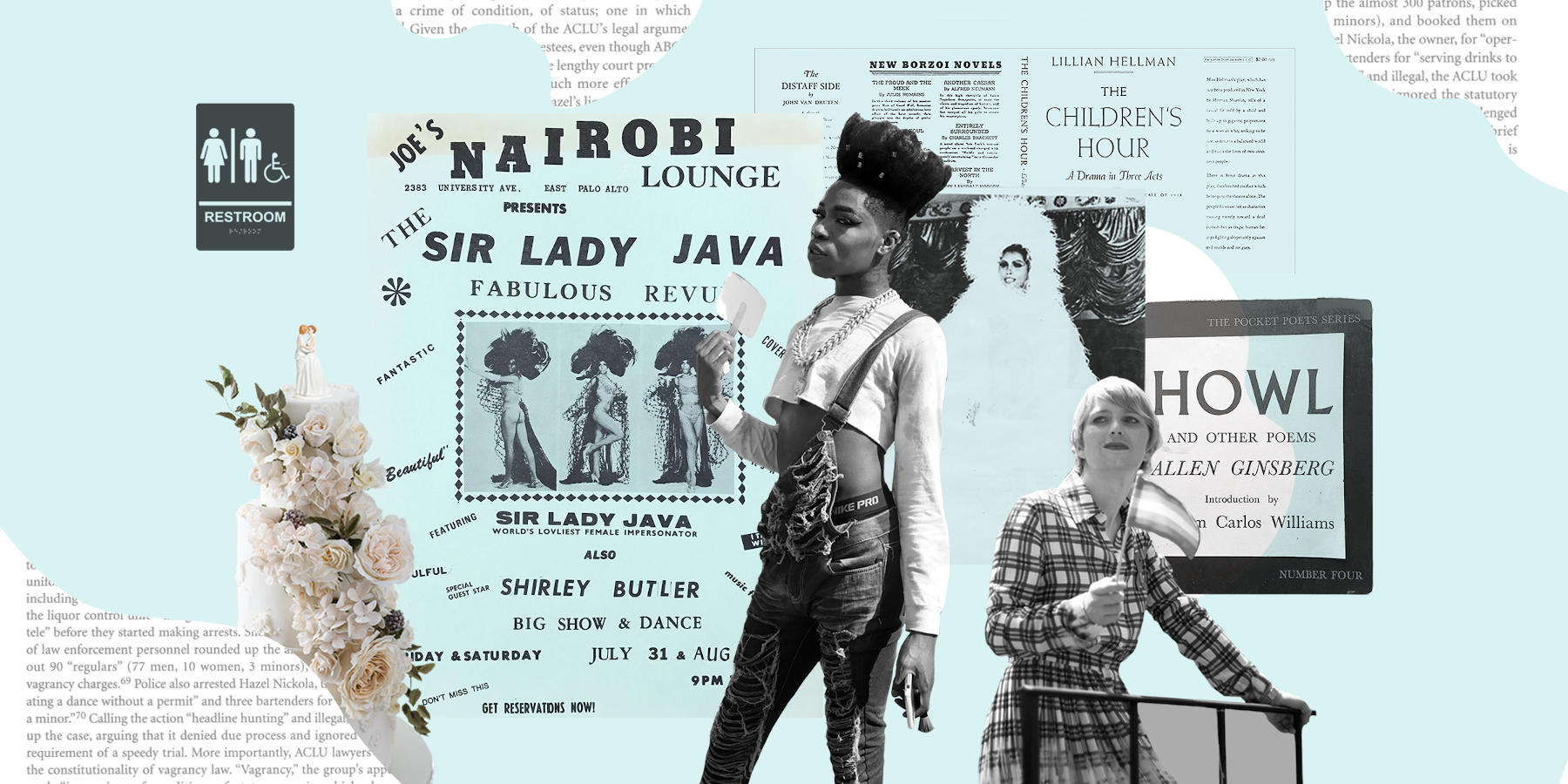
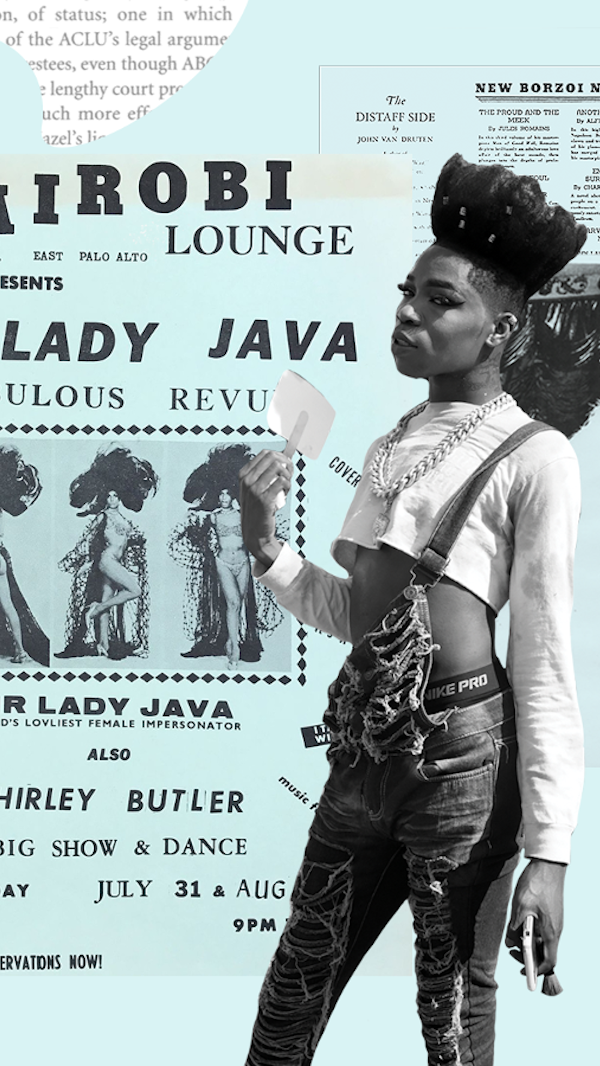
The ACLU’s first LGBTQ rights case was 33 years before trans women of color led the riot against police brutality and anti-LGBTQ harassment at Stonewall.
We look back at some of the pivotal moments in the ACLU’s work to advance equality and justice for LGBTQ people and the work that remains today.
1936
Defense of The Children’s Hour against censorship for lesbian content
Lillian Hellman’s stage play The Children’s Hour was nearly banned in Boston because of ‘lesbian content.’ The ACLU’s challenge of the attempt to ban the play sparked public conversations about LGBTQ people in public life and led to future victories.
1956
Defense of San Francisco Bay Area gay bar Hazel’s Inn raided by police
A decade before Stonewall, 87 people were arrested for being “lewd and dissolute” at a bar in Pacifica. Local council of the ACLU appeared on behalf of some of the people in court.
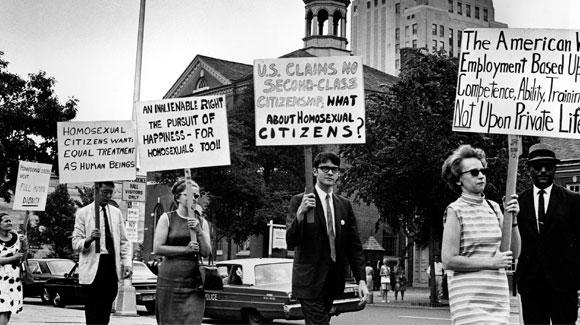
Demonstrators carry signs calling for protection of LGBTQ people from discrimination
Associated Press
1965
First court win in an LGBTQ employment discrimination case
The ACLU filed Scott v. Macy on behalf of Bruce Scott, a federal worker who was forced to resign under the suspicion that he was gay. In 1965, a federal appeals court ruled in his favor.
ACLU successfully challenges police raid on San Francisco LGBTQ event
The San Francisco Police Department tried to shut down a New Year’s Eve 1964 fundraiser dance for the newly-formed Council on Religion and the Homosexual, one of the nation’s first faith-based LGBTQ rights groups. Police attempted to scare patrons away with floodlights and cameras and multiple “fire inspections” and when event organizers asked to be shown a warrant police responded by arresting them. The ACLU defended the organizers at a trial, where the jury took only 10 minutes to return a unanimous verdict of not guilty. The raid, the surrounding publicity, and the subsequent trial led to unprecedented changes: the appointment of a special liaison between the police department and the gay community and the formation of an LGBTQ community hotline to report police abuse.
1967
ACLU opposed Los Angeles ordinance targeting transgender people and LGBTQ clubs
In the early fall of 1967, the Los Angeles police cracked down on the performances of Sir Lady Java, a Black trans woman from Louisiana, at the Redd Foxx Club. Invoking Rule No. 9, which made it illegal for performers to “impersonat[e] by means of costume or dress a person of the opposite sex,” the police threatened to arrest the owner of Redd Foxx if Sir Lady Java ever again got up on the club’s stage. The ACLU threatened to sue over the rule but the club owner was unwilling to be a plaintiff. Sir Lady Java continued to publicly protest the rule and ultimately another lawsuit declared the rule unconstitutional.
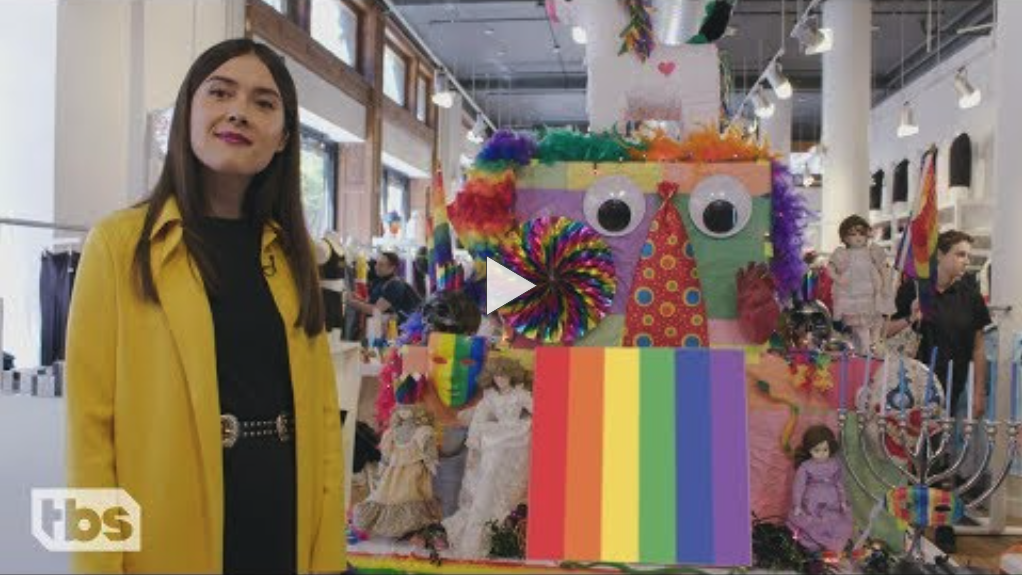
1970
ACLU files the first ever legal challenge to the military ban on gay servicemembers
While “Don’t Ask, Don’t Tell” wouldn’t be repealed for another four decades, the ACLU first challenged a ban on gay service members on behalf of Richard Schlegel in Schlegel v. U.S.
First challenge to law restricting marriage for same-sex couples
A same-sex couple in Minnesota, Richard Baker and James Michael McConnell, applied for a marriage license and were denied by county officials. Their challenge, Baker v. Nelson, went all the way to the U.S. Supreme Court but was dismissed “for want of a substantial federal question.”
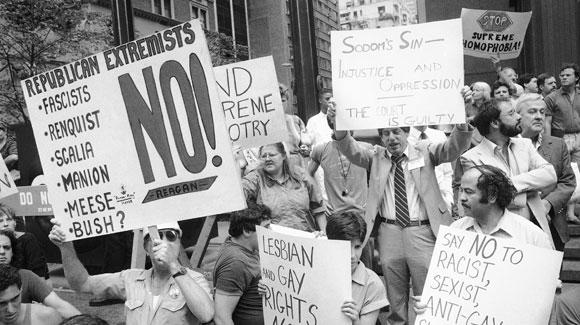
Demonstrators protest the Supreme Court’s ruling on consensual sex between same-sex adults
Associated Press
1986
Launch of National ACLU Lesbian and Gay Rights Project and AIDS Project
Leaders of the modern LGBTQ rights movement, including philanthropist and first openly-gay U.S. ambassador James C. Hormel, formed what has become the LGBTQ & HIV Project. One week later the Supreme Court upheld Georgia’s sodomy law criminalizing consensual sex. The loss in Bowers v. Hardwick did not stop founding director Nan Hunter from fighting in the courts and in communities for LGBTQ people and those living with HIV.
1989
Supreme Court recognizes trans women in prisons should be protected from sexual assault
On August 21, 1989, Dee Farmer, a Black trans woman, sued prison officials after being raped in a maximum security men’s federal prison. On June 6, 1994, the Supreme Court unanimously ruled in Farmer v. Brennan that Dee Farmer’s case against the prison could move forward. Tens of thousands of subsequent court decisions have cited Dee’s case and the legal standard it established.
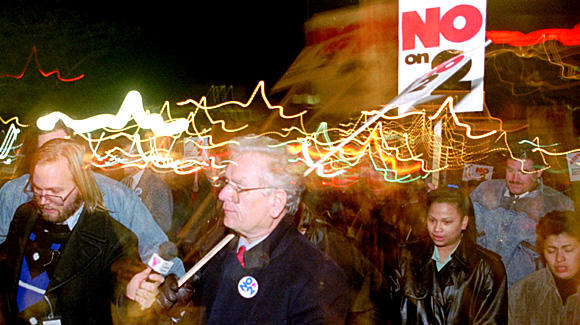
Former Colorado Governor Roy Romer and demonstrators
Associated Press
1996
Supreme Court delivers victory for civil rights laws protecting LGB people
The ACLU, along with Lambda Legal, blocked a Colorado constitutional amendment that would have stripped lesbian, gay and bisexual people of civil rights protections. The decision in Romer v. Evans is the first victory for LGB nondiscrimination protections at the Supreme Court.
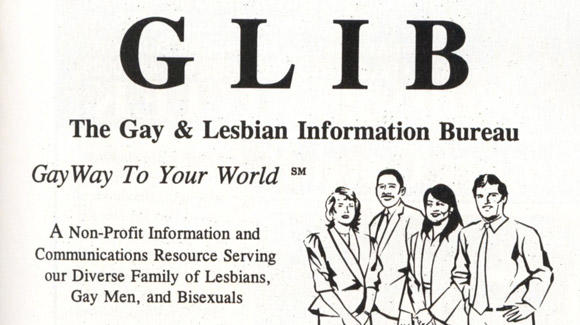
An ad for GLIB BBS
Flickr/Jason Scott
1997
Supreme Court strikes down law restricting LGBTQ materials on the Internet
The rise of digital speech created new opportunities for government censorship. In ACLU v. Reno, the Supreme Court struck down a law that could have prevented LGBTQ people from being represented on the Internet.
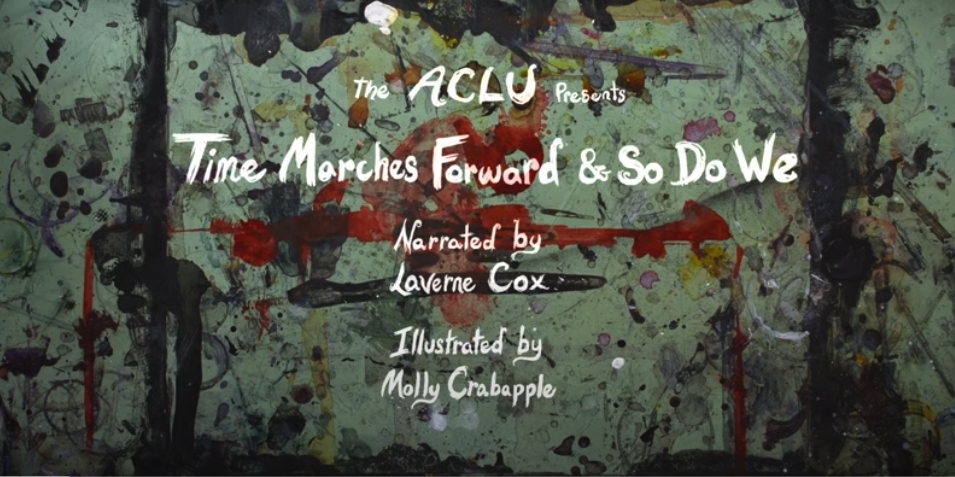
2009
Federal court rules that discriminating against someone for being trans is sex discrimination
Diane Schroer was a retired Army Colonel who was denied a position with the Library of Congress after her future supervisor learned she is transgender. The victory in Schroer v. Library of Congress has meant that trans people are protected from discrimination in the workplace under federal law.
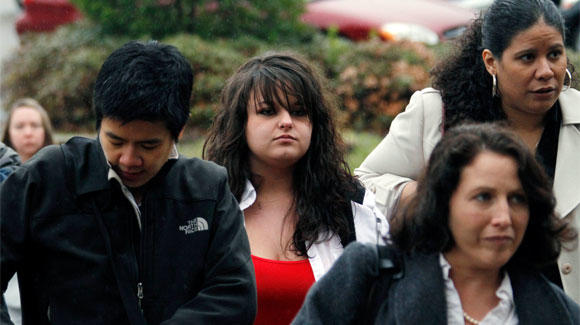
Constance McMillen, center, walks to the federal courthouse in Aberdeen, Mississippi
Associated Press
2010
Mississippi judge says schools must allow same-sex couples to attend prom
Constance McMillen and her girlfriend wanted to attend prom together and wear tuxedos. After the ACLU sent a letter to the school, the district canceled prom and created an alternative event for every student but Constance. Ultimately, the school district settled the lawsuit, McMillen v. Itawamba County School District, and changed their policies.
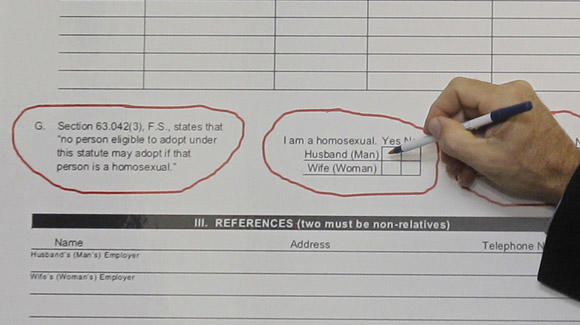
A Florida court overturns that state’s anti-gay adoption ban
After 33 years and four court challenges, a court ruled (In re: Gill) that Florida’s ban on adoption by gay people was unconstitutional, allowing our client Martin Gill to adopt the foster children he had been raising for years.
2013
Supreme Court strikes down the so-called “Defense of Marriage Act”
Edie Windsor and Thea Spyer shared their lives together as a couple in New York City for 44 years. On June 26, 2013, the Supreme Court ruled in U.S. v. Windsor that it was unconstitutional for the federal government, under section three of the so-called “Defense of Marriage Act,” to treat married same-sex couples as though they were unmarried for purposes of over 1,100 federal programs and protections.
2014
Gavin Grimm challenges Gloucester County School Board anti-trans policy
�Ҳ�������’s lawsuit against the Gloucester County School Board for adopting an anti-trans bathroom policy helped spark a national conversation about trans people in public life. Now graduated, Gavin still waits for a decision in his case, and for his school to treat him as the man he is.
2015
Supreme Court makes freedom to marry the law of the land
Jim Obergefell spent 22 years of his life with John Arthur. When John died, Jim was handed a death certificate with no surviving spouse listed. His fight to have his marriage recognized struck down state bans on marriage equality across the country when the Supreme Court ruled in Obergefell v. Hodges.
2016
Federal challenge to North Carolina’s anti-trans “bathroom bill” HB2 filed
The ACLU’s fight, along with Lambda Legal, against anti-trans bathroom policies continues in Carcaño v. Cooper. The notorious law was replaced by HB 142. A settlement in this case was approved in July, 2019.
Aimee Stephens challenges her firing for being trans
Aimee Stephens worked in funeral services for nearly three decades when she told her employer that she is a woman. A federal appeals court ruled in 2018 that her firing was unlawful sex discrimination. This fall, the Supreme Court will hear Aimee’s case and decide whether or not to roll back critical protections for LGBTQ people.
ACLU challenges transgender military ban
Six transgender service members, as well as six individuals who want the opportunity to serve in the military and are transgender are challenging the Trump administration’s military ban in Stone v. Trump.
2018
Supreme Court upholds Colorado nondiscrimination law in Masterpiece Cakeshop
David Mullins and Charlie Craig were turned away from Masterpiece Cakeshop because they are gay. While ruling for the bakery due to concerns specific to the case, the Supreme Court reaffirmed the core principle that businesses open to the public must be open to all in Masterpiece Cakeshop v. Colorado Civil Rights Commission.
Wisconsin jury awards $780k to transgender women denied health care coverage
Alina Boyden and Shannon Andrews are two state employees who were denied medically necessary care because they are transgender. A Wisconsin jury sent the state a bill for discriminating against Alina and Shannon.
1,829,689 people in Alaska and Massachusetts voted to uphold transgender nondiscrimination protections
With financial and on-the-ground support from the ACLU, voters in Alaska and rejected transphobia and voted to keep nondiscrimination protections for transgender people.
2019
Supreme Court allows school policies supporting transgender students to stand
In a victory for transgender students, the Supreme Court declined to hear Doe v. Boyertown Area School District. With the action, the court allowed school districts to support transgender students by allowing them to use the restrooms that match their gender identity.
Aimee Stephens Takes First Case Involving Trans Civil Rights to the Supreme Court
Aimee Stephens was fired from her job as director of a Michigan Funeral Home because she is transgender. On October 8, 2019, her case was heard before the Supreme Court.
U.S. House passes Equality Act
In May, the U.S. House of Representatives passed landmark civil rights legislation advocated by the ACLU, the Equality Act. This bill would provide LGBTQ people with comprehensive, explicit protection against discrimination. This vote marked the first time in U.S. history that a chamber of Congress had passed comprehensive civil rights legislation for LGBTQ people.
2020
Supreme Court rules the Civil Rights Act protects LGBTQ people from discrimination
The Supreme Court ruled in favor of ACLU clients Aimee Stephens and Don Zarda, as well as Gerald Bostock, in saying that it is unlawful to fire someone for being LGBTQ. Sadly, Aimee Stephens and Don Zarda did not live to see this victory.
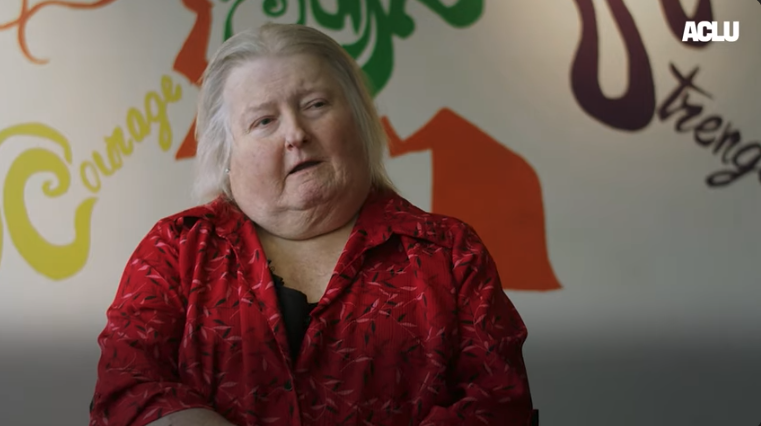
Idaho Passes Ban on Trans Students in Schools Sports
Shortly after Idaho became the first state to pass a law banning trans student athletes, Boise State student Lindsay Hecox sued the state. In August of 2020, a federal judge blocked Idaho from implementing this discriminatory law.
ACLU Releases Analysis of 80 Studies on Sex Work Decriminalization
In October of 2020 the ACLU released “Is Sex Work Decriminalization the Answer? What the Research Tells Us” as part of a growing campaign to decriminalize sex work nationwide. The analysis reflects what transgender women and sex workers have been saying for decades: laws criminalizing sex work hurt public health and public safety.
2021
Ban on Transgender Military Service Lifted
President Biden revoked President Trump’s ban on transgender people from serving in the military within a week of taking office. On day one the Biden administration also issued an executive order fully implementing the decision in Bostock in all areas of the federal government.
ACLU Launches “They The People” Campaign
The ACLU launches a campaign asking the Biden administration to issue an executive order to make it easier for trans and non-binary people to have accurate federal IDs. The ACLU’s campaign includes the ACLU’s largest-ever advertising campaign on transgender justice and largest ad campaign targeting the White House on an LGBTQ issue.
Naming of the Jon L. Stryker and Slobodan Randjelović LGBTQ & HIV Project
The ACLU’s work will continue for generations to come thanks to a generous contribution from Jon L. Stryker and Slobodan Randjelović. Located in the Ruth Bader Ginsburg Center for Liberty, the Stryker and Randjelović LGBTQ & HIV Project will continue the ACLU’s work for LGBTQ rights in courts and communities around the country.
Supreme Court Will Rule on Discrimination in Taxpayer-Funded Programs
In June 2021, the Supreme Court again ruled there is no constitutional license to discriminate. There court did say that Philadelphia violated the rights of a taxpayer-funded foster care program when it refused to renew a contract due to specific language in the contract. The agency, Catholic Social Services, sought a ruling that would have allowed taxpayer-funded agencies to turn away not just LGBTQ people but people who are Jewish, Muslim and Mormon as well.

